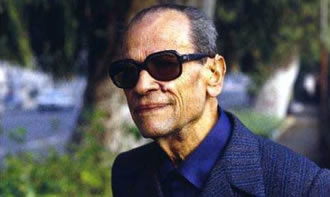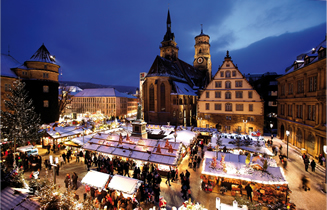De Italiaanse schrijver Andrea De Carlo werd geboren in Milaan op 11 december 1952. Zie ook alle tags voor Andrea De Carlo op dit blog.
Uit: Due di Due (Vertaald door Paula Geldenhuys)
“When I first saw Guido Laremi we were both so skinny and perplexed, so transient in our lives as to stand and look on like bystanders as what was befalling us became part of the past, crushed without a minimal perspective.
My recollection of our first encounter is in fact a reconstruction, made up of details erased and added up and modified to extricate one single episode from the weft of insignificant episodes in which it then belonged.
In this reconstructed recollection I’m standing on the other side of the street, beholding the bustle of boys and girls swarming out of an old, gray building, scarcely contained by a metal railing which runs about ten meters along the sidewalk.
I have my hands in my pockets and the collar of my greatcoat raised and I’m desperately trying to assume a mien of non-belonging in the scene, even though I’ve gone out the same door and done the same tiresome route just a quarter of an hour before.
But I’m fourteen years old and I hate the clothes I’m wearing, I hate my general aspect, and the idea of being here right now.
The throng of young people comes forth like a torrent clogged by logs and emerging boulders; as the railing is cleared it pours into the street and invades it all the way over to my sidewalk.
And almost every face is too pallid or round or long, almost every body too angular or smoothed down, almost every gait lacking in balance, as if the schoolbags they are all carrying in their hands and over their shoulders were too light or heavy.
There is this bottom of active indifference in almost every gaze, in almost every act, which combines with the general dissipation of mechanical energy.
Not that I feel any better than the others: it’s the idea of seeing my defects multiplied one hundredfold that accentuates my uneasiness and reflects it all about”

Andrea De Carlo (Milaan, 11 december 1952)
De Egyptische schrijver Naguib Mahfouz werd geboren op 11 december 1911 in Caïro. Zie ook alle tags voor Naguib Mahfouz op dit blog.
Uit: Palace Walk (Vertaald door William M. Hutchins)
“She went to fetch it, and the glass projected onto the ceiling a trembling circle of pale light hemmed in by darkness. She placed the lamp on the table by the sofa. The light shone throughout the room, revealing the large, square floor, high walls, and ceiling with parallel beams. The quality of the furnishings was evident: the Shiraz carpet, large brass bed, massive armoire, and long sofa draped with a small rug in a patchwork design of different motifs and colors.
The woman headed for the mirror to look at herself. She noted that her brown scarf was wrinkled and pushed back. Strands of chestnut hair had crept down over her forehead. Grasping the knot with her fingers, she untied it. She smoothed the scarf around her hair and retied the two ends slowly and carefully. She wiped the sides of her face with her hands as though trying to erase any last vestiges of sleep. In her forties and of medium build, she looked slender, although her body’s soft skin was filled out to its narrow limits in a charmingly harmonious and symmetrical way. Her face was oblong, with a high forehead and delicate features. She had beautiful, small eyes with a sweet dreamy look. Her nose was petite and thin, flaring out a little at the nostrils. Beneath her tender lips, a tapered chin descended. The pure, fair skin of her cheek revealed a beauty spot of intensely pure black. She seemed to be in a hurry as she wrapped her veil about her and headed for the door to the balcony. Opening it, she entered the closed cage formed by the wooden latticework and stood there, turning her face right and left while she peeked out through the tiny, round openings of the latticework panels that protected her from being seen on the street.
The balcony overlooked the ancient building housing a cistern downstairs and a school upstairs which was situated in the middle of Palace Walk, or Bayn al-Qasrayn. Two roads met there: al-Nahhasin, or Coppersmiths Street, going south and Palace Walk, which went north. To her left, the street appeared narrow and twisting. It was enveloped in a gloom that was thicker overhead where the windows of the sleeping houses looked down, and less noticeable at street level, because of the light coming from the handcarts and from the vapor lamps of the coffeehouses and the shops that stayed open until dawn. To her right the street was engulfed in darkness. There were no coffeehouses in that direction, only large stores, which closed early”
.

Naguib Mahfouz (11 december 1911 – 30 augustus 2006)
De Duitse dichter Marco Kugel werd geboren op 11 december 1979 in Stuttgart. Zie ook alle tags voor Marco Kugel op dit blog.
in weiß verpackte hüften
in weiß verpackte hüften deren märchenballsaalhüftschwung
in kleinen runden in schwirren von licht über die kacheln
herein an den kühlschrank weißes licht liegt jetzt kommt höher über die dächer
das jahr ist spät dran nochmals dein geprüfter toilettengang
in lauter aufgeregter aufbruchstimmung bleiben uns alle sorgen
dazu hängen kümmerlich blasse lampions im mittag aber heut abend
gibts kein weinen mehr kein schlecht genähter knopf fällt von deinem kleid
deine hand am ärmel deines papas einmal noch gewischter mund
spürst du ein leises kitzeln gerade zündet jemand eine wunderkerze
neben deiner nackten schulter mit fortschritten und technik und hoffnung und bildern
und gelesenes wir wollen wieder etwas wie vor jahren etwas zeitversetzen bitte
kann man denn gar nicht still hinter geschlossnen lidern zurück
und du weißt nicht was du willst es ist so viel zu trinken so hell die feier
und funkel und augengefunkel hinter deinem serviettenschleier schaust gebannt
nach draußen deine ganz bunten eignen lampions

Marco Kugel (Stuttgart, 11 december 1979)
Weihnachtsmarkt op de Schillerplatz in Stuttgart
Zie voor nog meer schrijvers van de 11e december ook mijn drie blogs van 11 december 2011.
